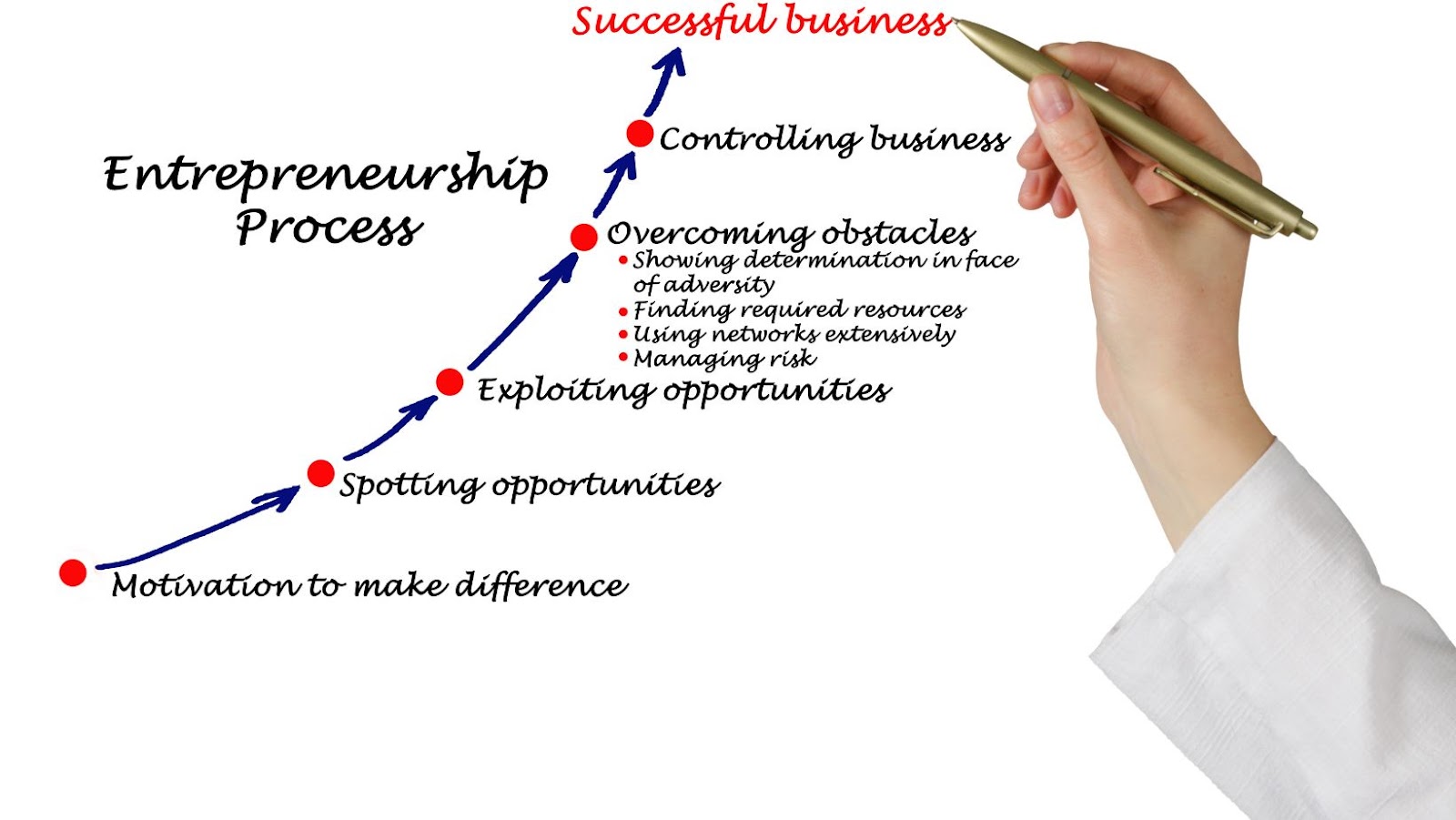Starting a business in Nigeria is becoming increasingly difficult due to the high cost associated with setting up a business. This high cost is an obstacle for entrepreneurs looking to start their own business.
In this article, we will discuss the high cost of starting a business in Nigeria and the major factors that contribute to this cost. We will also discuss how entrepreneurs can overcome this obstacle.
Definition of entrepreneurship
Entrepreneurship is a process of identifying, exploring, and acting upon opportunities in order to create something of value to the market or society. It involves the recognition and exploration of an opportunity until it is realized as a successful venture or business. Entrepreneurship usually follows a systemic approach which involves the acquisition of resources, transforming those resources into finished goods or services and selling them for profit.
Entrepreneurs are often seen as risk-takers who are prepared to take on financial investments in order to bring their ideas and products to life, with no guarantees that they will be successful. They bring fresh ideas, innovations and solutions to the market, and help drive economic growth.
The most inspiring entrepreneurs often come from humble backgrounds. Many people around the world have the capability and capacity but may find themselves lacking access to financial capital due to a number of factors – such as living in an economy where conditions are not conducive for entrepreneurship (such as poverty levels); geographical barriers; presence of corrupt governments; lack of education; etc. This can be especially true for countries like Nigeria where entrepreneurship can prove costly due to limited incentives for small businesses as well as red tape limiting one’s ability to setup companies with ease.
Overview of entrepreneurship in Nigeria
Nigeria is a rapidly growing economy and can be seen as a hotbed of entrepreneurial activity. Despite the hard work and creativity of passionate entrepreneurs in Nigeria, many face significant challenges that stand in their way when starting a business. One such challenge is the high cost of starting a business. This can be attributed to a wide variety of factors, including sparse infrastructure, limited access to capital, inefficient bureaucracy and rent seeking behavior. While some entrepreneurs have overcome the obstacles associated with financing to build strong businesses, there are still many others who cannot make the jump due to this costly barrier.

Apart from financing costs, startups in Nigeria often have difficulties accessing reliable services such as for accounting, legal assistance or marketing support. This can lead to costly errors and misunderstandings that get in the way of business growth. On top of all these challenges is the regulatory burden which tends to be burdensome with little room for flexibility or innovation.
These obstacles combined together form an important obstacle toward lasting entrepreneurship in Nigeria and can keep talented entrepreneurs from achieving success due to limited resources available at start-up stage. As such, it becomes increasingly important for aspiring entrepreneurs in Nigeria to be informed about various government policies and regulations that could affect their businesses so they can navigate through these roadblocks with greater ease.
High Cost of Starting a Business in Nigeria
Starting a business in Nigeria can be a daunting task, especially due to the high cost associated with it. From registering with the Corporate Affairs Commission to securing needed permits and licenses, the process can be very expensive. This is a major obstacle toward entrepreneurship in Nigeria, and can be a deterrent to many potential entrepreneurs.
But what are the major costs associated with starting a business in Nigeria? Let’s take a closer look:
Which is a major obstacle toward entrepreneurship in nigeria
The most common registration type for businesses in Nigeria is a business name, which means that aspirational entrepreneurs will first need to be registered with the Corporate Affairs Commission (CAC) in accordance with applicable company laws. It is estimated that approximately 80% of all business enterprises in Nigeria are operated as sole proprietorships or business names.

Although registering a new company or business name with the CAC may be one of the most essential steps when starting a business in Nigeria, the high cost associated with this process can often be a major deterrent to aspiring entrepreneurs. The fees for registering a new business name can vary from state to state, but there is typically an online filing fee and an execution fee when obtaining your certificate of incorporation or authorization from the CAC. The fees range from N7,500-N15,000 depending on the nature of your company/business name registration package. Additionally, you may also incur additional expenses related to application forms, name search fees and authentication from other regulatory institutions like the Nigerian Investment Development Company (NIDC).
Finally, some states may also require extra payments for additional services such as expedited processing time and out-of-state registration processing. These services can be essential for people who are based overseas trying to set up their companies remotely but can add substantially to the cost of doing business. All together it is not uncommon for aspiring entrepreneurs in Nigeria to spend upwards of N25,000-N30,000 just on registering their businesses meaning that access to capital or loans becomes fundamental to being able to set up shop.
Cost of obtaining a business license
Starting a business in Nigeria involves numerous regulatory requirements. One of the most important of these is obtaining a business license from the Corporate Affairs Commission (CAC). The cost to obtain a business license can be quite high, depending on the size and type of business being established.
Costs associated with obtaining a business license include:
- Registration fees
- Annual General Meeting fees
- The cost to pay for an audit
Depending on the complexity of your business structure, these costs could range from ₦50,000 to ₦500,000 for registration and another ₦50,000 for pre-audit processes. If an audit is required it will add additional costs depending on the type and complexity of your business structure.
This financial burden alone can deter many potential entrepreneurs from getting started with their business endeavors in Nigeria. It is crucial that government authorities find ways to reduce these costs in order to encourage more micro-entrepreneurship. The need to boost economic growth by empowering small businesses is essential if Nigeria hopes to make strides towards better economic stability in the coming years.
Cost of renting premises
In Nigeria, renting premises for a business can be hugely expensive. Companies typically need to pay the full amount of rent in advance, and can spend up to four years rent-free upfront. This massive financial commitment makes it difficult for small companies to use rented office space. Furthermore, in recent years some states have introduced additional levies; such as electricity bills, parking fees and street cleaning charges, adding further strain onto start-up finances.
In some industries such as retail outlets or restaurants, these costs are even higher due to store-fitting expenses. These businesses must also secure equipment and furnishings prior to opening their doors which puts immense pressure on their start-up funds.
The high cost of renting premises is one of the key obstacles standing in the way of entrepreneurs setting up businesses in Nigeria. Moreover, with available property being slow to come onto the market due to complex laws that favor a limited number of established property developers – already high costs are only likely to climb further.
Cost of hiring staff
One of the major costs of starting a business in Nigeria is the cost of hiring staff. The size of the staff, i.e., how many personnel are needed to operate and manage a business will determine the amount of money to be invested in this important area. It is generally accepted that smaller businesses may require fewer workers, and as such, their overhead costs are often lower compared with those for larger companies.
The cost of staffing can be divided into two categories:
- Fixed expenses which may include wages, benefits (such as vacation, sick leave), and other contractual agreements;
- Variable costs which may include payroll taxes and other recruitment-related expenses like job postings and background checks.
It is important to factor these costs when calculating the overall budget for starting a business in Nigeria. Hiring competent employees can also be very difficult due to various factors including competition among employers, lack of available qualified personnel, unstandardized qualifications among applicants, poor working conditions offered by some employers, insufficient training opportunities provided by some employers and perceived difficulty in reinforcing discipline with laborers. These difficulties should also be taken into consideration while calculating startup costs to ensure that you have adequately accounted for this expense as you prepare your business plan.
Cost of marketing
Marketing is a crucial part of starting a successful business in Nigeria. It involves getting the word out about your product or service and attracting customers through effective promotion techniques. This may include traditional methods such as television or print advertisements, or digital tactics such as website optimization, email marketing and social media campaigns.
The cost of marketing can vary depending on the type of services you use, but typically includes costs associated with developing content, designing campaigns, hiring external team members and running ads on various platforms. In addition to these direct costs, businesses must also account for overhead expenses such as office rent and operational costs which can add significantly to the total expense of running a marketing campaign in Nigeria.





